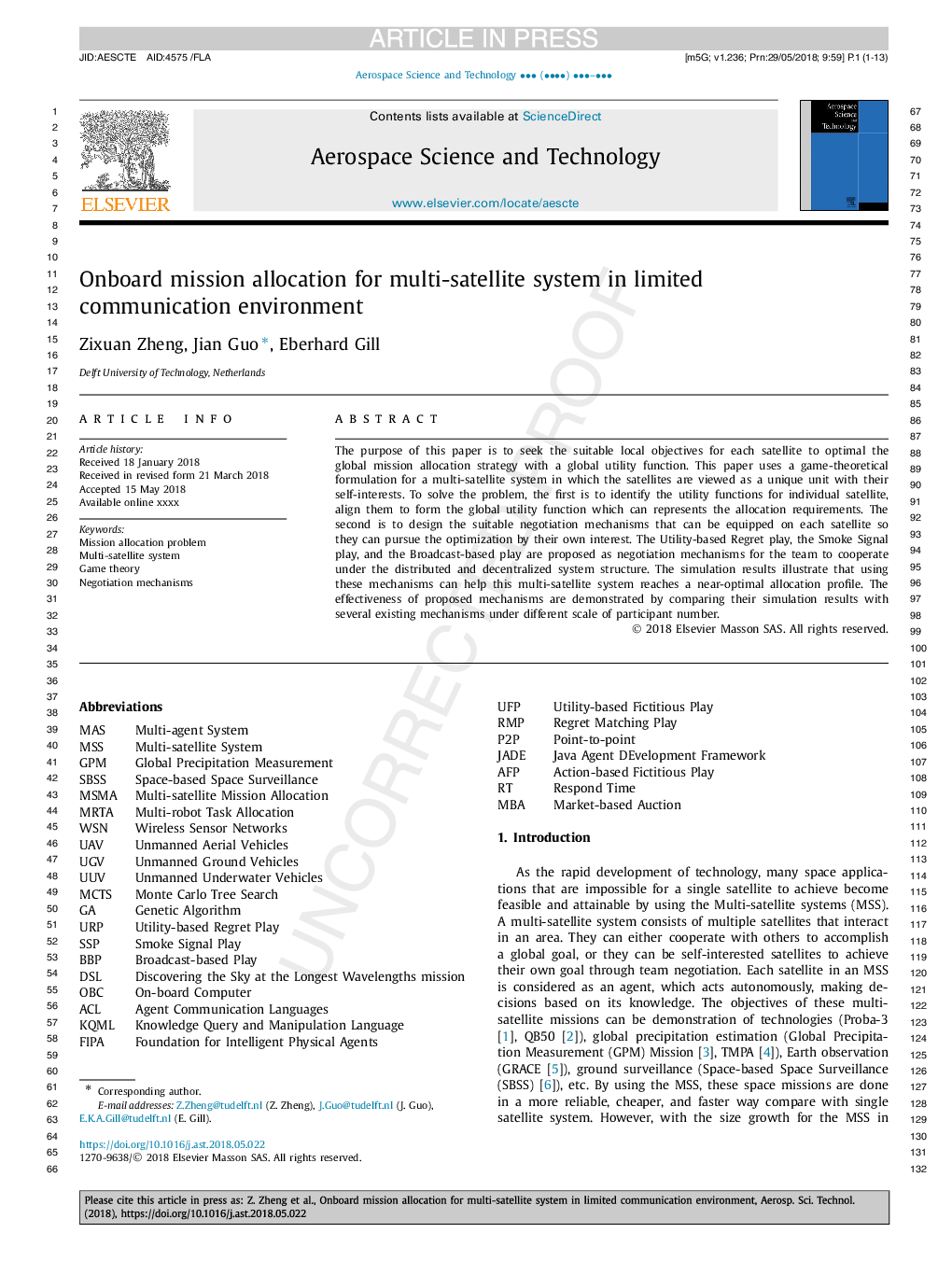| Article ID | Journal | Published Year | Pages | File Type |
|---|---|---|---|---|
| 8057349 | Aerospace Science and Technology | 2018 | 13 Pages |
Abstract
The purpose of this paper is to seek the suitable local objectives for each satellite to optimal the global mission allocation strategy with a global utility function. This paper uses a game-theoretical formulation for a multi-satellite system in which the satellites are viewed as a unique unit with their self-interests. To solve the problem, the first is to identify the utility functions for individual satellite, align them to form the global utility function which can represents the allocation requirements. The second is to design the suitable negotiation mechanisms that can be equipped on each satellite so they can pursue the optimization by their own interest. The Utility-based Regret play, the Smoke Signal play, and the Broadcast-based play are proposed as negotiation mechanisms for the team to cooperate under the distributed and decentralized system structure. The simulation results illustrate that using these mechanisms can help this multi-satellite system reaches a near-optimal allocation profile. The effectiveness of proposed mechanisms are demonstrated by comparing their simulation results with several existing mechanisms under different scale of participant number.
Keywords
Related Topics
Physical Sciences and Engineering
Engineering
Aerospace Engineering
Authors
Zixuan Zheng, Jian Guo, Eberhard Gill,
